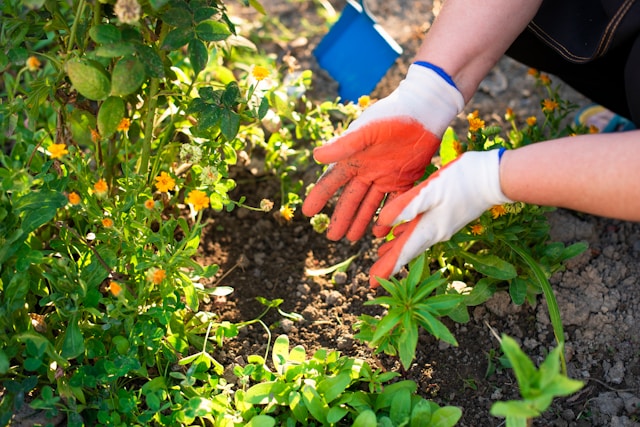
When it comes to growing vegetables in Pakistan, healthy soil means healthy plants. One of the most important parts of maintaining good soil health is using the right fertilizer. While chemical fertilizers may give fast results, organic fertilizers offer long-term benefits that support both your plants and the environment. But with so many options available, how do you choose the right organic fertilizer for your vegetable garden?
In this blog, we’ll walk you through the process of selecting the best organic fertilizer for your vegetables in Pakistan, whether you’re growing tomatoes in your backyard or managing a small kitchen garden.
Table of Contents
ToggleWhy Choose Organic Fertilizers for Vegetables?
Organic fertilizers are derived from natural sources such as compost, animal manure, plant waste, and minerals. Unlike synthetic fertilizers, they improve the structure of the soil, increase microbial activity, and release nutrients slowly over time. This means stronger roots, healthier crops, and better long-term yield.
Advantages of using organic fertilizers:
- Improve soil fertility and texture
- Reduce the risk of over-fertilization
- Support sustainable agriculture
- Safe for the environment, beneficial insects, and pollinators
In Pakistan, where soil quality and climate vary from region to region, organic fertilizers can be particularly helpful in enriching poor or overworked soil.
Understand Your Soil First
Before you rush to buy a bag of fertilizer, take some time to understand your soil. This step is crucial and often overlooked.
Here’s what you can do:
- Test your soil: A basic soil test can tell you the pH level and nutrient deficiencies. You can use a home soil testing kit or consult local agricultural services.
- Know your vegetable needs: Different vegetables require different nutrients. Leafy greens love nitrogen, fruiting vegetables like tomatoes need more phosphorus and potassium.
Knowing your soil type and crop requirement allows you to choose a fertilizer that balances the missing nutrients.
Popular Types of Organic Fertilizers in Pakistan
Let’s look at some organic fertilizers commonly used in Pakistani vegetable gardens:
Compost:
- Made from decomposed kitchen scraps, garden waste, and farm manure.
- Rich in humus and nutrients.
- Improves soil structure and water retention.
Cow Dung (Gobar):
- Traditional and widely used in rural areas.
- Excellent source of nitrogen.
- Needs to be well-rotted before use.
Chicken Manure:
- High in nitrogen, phosphorus, and potassium.
- Best used after composting to avoid burning plants.
Vermicompost:
- Produced by earthworms breaking down organic matter.
- Improves nutrient availability and boosts plant growth.
Bone Meal:
- Rich in phosphorus and calcium.
- Great for root development and flowering plants.
Neem Cake:
- A by-product of neem oil extraction.
- Works as a fertilizer and natural pest repellent.
Fish Emulsion:
- Liquid fertilizer made from fish waste.
- Fast-acting and rich in nitrogen.
Choosing the Right Fertilizer Based on Your Vegetables
Here’s a quick guide to help you match fertilizers with common vegetables:
- Leafy Vegetables (Spinach, Lettuce, Coriander):
- Need: Nitrogen
- Best Fertilizer: Chicken manure, compost, vermicompost
- Root Vegetables (Carrots, Radish, Beetroot):
- Need: Balanced NPK
- Best Fertilizer: Well-rotted cow dung, bone meal, compost
- Fruiting Vegetables (Tomatoes, Brinjal, Capsicum):
- Need: Phosphorus & Potassium
- Best Fertilizer: Bone meal, fish emulsion, neem cake
How and When to Apply Organic Fertilizers
Organic fertilizers release nutrients slowly, so timing and application matter:
- Before planting: Mix compost or manure into the soil 2-3 weeks before sowing.
- During growth: Apply vermicompost or fish emulsion once a month for extra nutrition.
- Top dressing: Sprinkle around the plant base without touching stems or leaves.
- Watering: Always water after applying dry fertilizers to help nutrients reach the roots.
Common Mistakes to Avoid
- Using fresh manure: It can burn plants and contain harmful bacteria. Always compost it first.
- Over-fertilizing: Organic doesn’t mean unlimited. Too much can still harm plants.
- Ignoring soil condition: One-size-fits-all doesn’t work. Test and amend accordingly.
- Expecting instant results: Organic fertilizers take time to show impact, but benefits last longer.
Where to Buy Organic Fertilizers in Pakistan
You can find organic fertilizers at:
- Local nurseries and garden centers
- Online gardening stores
- Agricultural co-ops and farms
- Make your own compost at home!
Some local brands and suppliers also offer region-specific blends, especially for kitchen gardening.
Choosing the right organic fertilizer for vegetables in Pakistan isn’t difficult if you understand your soil and plant needs. Go natural, stay patient, and your plants will thank you with lush leaves, strong roots, and bountiful harvests.
Organic gardening is not just about growing vegetables – it’s about growing healthy, sustainable food for your family and the future. So, start small, learn as you go, and enjoy the journey!
